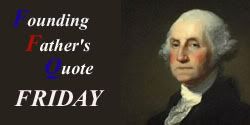

Pirates on the high seas, grabbing cargo and crews for ransom? It has to be something out of the 18th and 19th century, right? It could never occur now, not in our satellite imaging, missile firing, aircraft flying, radar sighting 21st century?
As has been shown by the news lately, this piracy is a continuing plague infecting our seas. The International Maritime Bureau
Piracy Reporting Centre provides this map of the world-wide influence of piracy on the high seas.

As the riveting story of a crew that fought back, a kidnapped captain, a U.S. destroyer in the

area – and more U.S. ships on the way, along with more pirate vessels, and a negotiating standoff that is expected to result in a hefty ransom being paid. Crews are not allowed weapons, ships are not armed, and the vessels in these heavily travelled waters are encouraged to fight piracy with high-pressure water cannon and evasive maneuvers. While the captain of the vessel is being held hostage on the open seas, the fact that American crewmen actually retook their vessel, the
Maersk Alabama, so shocked the world that it is headline news.
Is there any events from our past that could guide us in dealing with the crisis?
Perhaps the words of Representative Robert Goodloe Harper, from an address on June 18, 1798,

should be heeded again.
"Millions for defense, but not one cent for tribute."
Harper served as a Federalist in the 3rd through 6th Congresses as a U.S. Representative from 1795 – 1801. He was the Chairman of the Committee on Ways and Means in 1798 when he uttered his famous statement, relating to
Quasi War with France – concerning the infamous
XYZ Affair during the administration of President
John Adams.
The nation rallied around the cry, and a fledgling navy gained valuable experience in this undeclared war. Later, similar thoughts entered in the first war fought on foreign soil by American sailors and Marines: the
War against Tripoli under our third President,
Thomas Jefferson. A pattern we are seeing today was established, with pirates seizing American ships and crews in the Mediterranean and holding them for ransom – unless the American government paid ‘tribute’ to the local rulers. At one point the tribute to the Barbary Coast was approximately 10% of the U.S. government’s revenue.
In 1786, Thomas Jefferson and John Adams went to negotiate with Tripoli's envoy to London, Ambassador Sidi Haji Abdrahaman or (Sidi Haji Abdul Rahman Adja). Upon inquiring "concerning the ground of the pretensions to make war upon nations who had done them no injury", the ambassador replied:
"It was written in their Koran, that all nations which had not acknowledged the Prophet were sinners, whom it was the right and duty of the faithful to plunder and enslave; and that every muslim who was slain in this warfare was sure to go to paradise. He said, also, that the man who was the first to board a vessel had one slave over and above his share, and that when they sprang to the deck of an enemy's ship, every sailor held a dagger in each hand and a third in his mouth; which usually struck such terror into the foe that they cried out for quarter at once."

Jefferson argued that paying more tribute to the Barbary States would lead to more attacks. When the declared war by chopping down the American flagpole in 1801, a four-year war ensued, ending with the capitulation of the Barbary states, recovery of hostages, and a pledge to not seize American ships. Of course, that pledge was broken in a decade, and the
Second Barbary War was fought, with similar results.
During World War I and World War II a neutral America armed it’s merchant ships and formed convoys.

In the 19th century – the era of gunboat diplomacy –
Lord Palmerston, British Foreign Secretary in 1841, remarked "Taking a wasps' nest... is more effective than catching the wasps one by one" and allowed the British navy to destroy pirate and slave trader enclaves.
There is no time nor space to go into what Rome did under Emperor Augustus to end piracy in the Mediterranean, but it worked - for a century of
Pax Romana.
Did these methods work? To an extent, yes - sending a message to those who flout the law. Were they controversial? Yes, and doubtless will not be adopted in today’s politically correct world. What solutions could there be to the problem that is politically correct and acceptable? Would dropping some
SEALS over the side of the USS Bainbridge (coincidentally named after the Commander of the Barbary War) to rescue the captain of the
Maersk Alabama be feasible for the short term?
Last year shipping interests handed over $80 million – money which fuels a livelihood for many in a war-torn, chaotic Somalia. The bribes simply encourage continued piracy. There has to be another solution. Perhaps the past offers an alternative.
Of course, we still try to buy favor of nations through foreign aid – a tribute of sorts.
Essential Question: What discussion strategies can be used with students to analyze the events taking place off the coast of Somalia and to devise acceptable strategies to deal with piracy today?
Founding Fathers Quote Friday is hosted at
Meet the Founders blog.
PHOTO SOURCE:
1. Today's Pirate Ship:
IMB Piracy Reporting Center2. World Map of Piracy:
IMB Piracy Reporting Center 3. Africa Coast Map:
BBC Hourly News4. Robert Goodlin Harper: The Project Gutenberg
EBook of Albert Gallatin, by John Austin Stevens
5. Paying Tribute:
Wikipedia6. Lord Palmerston:
Wikipedia
 THE Journal (April 2009) had a useful article on the use of wikis in the classroom as part of the Web 2.0 concept.
THE Journal (April 2009) had a useful article on the use of wikis in the classroom as part of the Web 2.0 concept.














